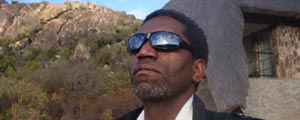
KENYANS opted for an International Criminal Court (ICC)-bound man. Some “progressive” Africans finger ICC for harbouring “sinister imperialist motives”.
Column by Rejoice Ngwenya
In their repertoire of accusations: haul George Bush Jr and Tony Blair to The Hague for “killing thousands of Arabs”! Others argue: if Charles Taylor, Omar al Bashir, Laurent Gbagbo, Joseph Kony, Thomas Lubanga, Uhuru Kenyatta or known Zanu PF operatives have inhumanity cases to answer, The Hague is ideal for clearing their names. They insist the African Union is incapable of apprehending African leaders who habitually flout humanity laws.
Kenyatta “agreed” to appear before The Hague. Question: Why then did Kenyans opt for his presidential candidature? Answer: “Ethnic democracy”!
Kenyatta benefited from Democratic Tribal Elections (D-TREL). Lindsey Hilsum prophesised: “Kikuyus will largely vote for the main Kikuyu candidate, Uhuru Kenyatta . . . Kalenjins will also vote Jubilee . . . Luos and some other minority groups will vote for Raila Odinga, a Luo . . .”
Harvard Professor Calestous Juma lends weight to D-TREL: “Political violence soon took on an ethnic dimension after Kenya’s disputed 2007 elections . . .”
The Kikuyu-Kisii-Kalenjin electoral bloc’s strong affinity with Jomo Kenyatta and Daniel arap Moi elevated a Hague-bound candidate to presidential status. Raila Odinga’s Luo-Luhyia-Kamba ethnic bloc was vanquished. Professor Juma insists: “(African) leaders often exploit tribal loyalty to advance personal gain, parochial interests, patronage, and cronyism” because “tribal interests have played a major role in armed conflict and civil unrest across the continent”. Zimbabwe is no different.
Of the five presidential candidates, Robert Mugabe, Morgan Tsvangirai and Simba Makoni are Shona “tribesmen” allegedly tainted with Zimbabwe’s deadly the anti-Ndebele 1980s Gukurahundi genocide. Mugabe was commander-in-chief while Tsvangirai and Makoni never “opposed” massacres. All three were members of Zanu PF. Their political moral worthiness could easily be subjected to ICC-like public scrutiny. Moreover, the D-TREL phenomenon favours them.
- Chamisa under fire over US$120K donation
- Mavhunga puts DeMbare into Chibuku quarterfinals
- Pension funds bet on Cabora Bassa oilfields
- Councils defy govt fire tender directive
Keep Reading
Zimbabweans will have to choose among Mugabe, Tsvangirai, Makoni, Welshman Ncube or Dumiso Dabengwa. Dabengwa and Ncube are both from the “minority” Kalanga/Ndebele tribe —direct victims of Gukurahundi.
It requires major ethnic national transformation for either to win the 2013 presidential elections, not least because they are incapable, but that even disgruntled Mugabe, Tsvangirai and Makoni supporters would find it “painful” to cross the electoral tribal divide.
Some Tsvangirai supporters, under the cover of political darkness, confess they can never vote for a Ndebele presidential candidate. Thokozani Khupe and Lovemore Moyo — party vice-president and national chairman respectively — are “minority” in the lineage of Tsvangirai’s MDC-T “presidential royalty”.
Were Tsvangirai to prevail, they both have to wait till 2017 before their party congress slots them into the presidential cockpit. However, Khupe must first defeat secretary-general Tendai Biti in the courtyard of tribal populism.
Mugabe, having spent most of his time juggling with factional politics would also never have “allowed”, even in the so-called “united” Zanu PF/PF Zapu, the late Joshua Nkomo or John Landa Nkomo to ascend beyond the Vice-Presidency. For now, he can sleep soundly.
None of his disgruntled supporters can vote for Ncube. Even where Tsvangirai prevails, it will take an act of gigantic self-denial to recommend “fellow tribesmen” Mugabe and Makoni, let alone himself, to The Hague. Given the South African experience, I doubt whether truth and reconciliation “findings” can result in convictions or “Kenyatta-like” outcomes.
Says Basil Ibrahim: “Building modern political parties . . . is, therefore, the most urgent way to counter tribal politics.” Juma concludes: “The way forward for African democracy lies in concerted efforts to build . . . political parties founded on development ideas and not tribal bonds.”











